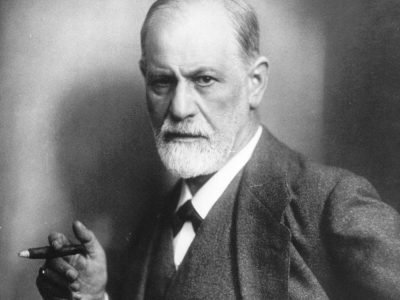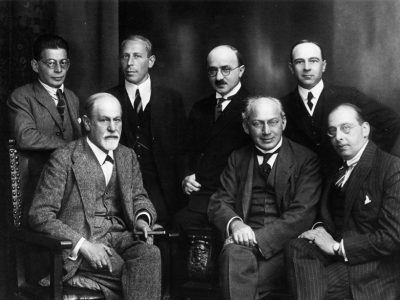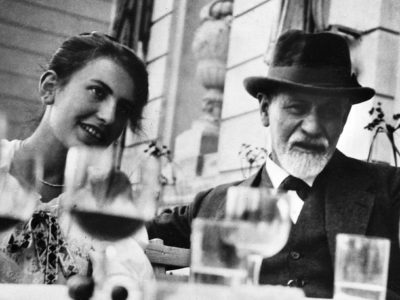Broadcast: 10 & 11 feb, 2022
Melanie Klein was a pioneer of child psychoanalysis whose radically new way of working with children brought her into sharp conflict with Freud’s daughter Anna – also a pioneer in the field. But ultimately her understanding of infancy and childhood, derived from her work with her young patients (as well as with adults), enabled her to create a powerful new version of psychoanalytic theory that took psychoanalysis completely beyond Freud, and marked the beginning of the Object Relations school. Klein’s writings contain a profound vision of the human condition, and we will examine its implications for psychotherapy and for society. We will also study the development of her ideas by Wilfred Bion.
Session 1: We will explore the first attempts at the psychoanalysis of children, beginning from Freud’s analysis of ‘Little Hans’. We will then look at how Anna Freud and Melanie Klein developed two sharply contrasting approaches to working psychoanalytically with children.
Session 2: We will study Klein’s psychoanalytic play technique which sees children’s play as representing (and therefore communicating) their emotional conflicts and anxieties in symbolic form. This will lead to an examination of the central Kleinian notions of ‘unconscious phantasy’ and ‘internal objects’.
Session 3: We will explore Klein’s complete theory of psychological development in the first year of life, which she sees as laying the foundation of the personality, over the whole lifetime. We will examine her notions of the ‘paranoid-schizoid position’, the ‘depressive position’, the ‘manic defences’, reparation, and the fundamental importance of envy and gratitude.
Session 4: We will explore the application of Klein’s insights to the understanding of society and art, and to the deep understanding of the human condition. We will review the relationship of Kleinian psychoanalysis to the other main schools, and relate Klein’s work to the contributions of two of her most important and creative psychoanalytic contemporaries: Ronald Fairbairn and Wilfred Bion.
Course reading material:
drive.google.com/file/d/1l7pbA2nqJjMi69xSDvZT8rcU_jHRVJdF/view?usp=sharing
(This is the second of four courses exploring psychoanalysis after Freud. The courses will be accessible to beginners – but are also designed for those already familiar with these theories who wish to acquaint themselves with the results of the latest research and scholarship, and update themselves on the recent debates addressing the intellectual issues and controversies surrounding it.)
Tutor:
Keith Barrett BA PhD received his first degree in philosophy from Oxford University after having spent three years working as a nursing assistant in psychiatric hospitals. It was in this practical context that Keith first encountered existentialism and psychoanalysis. He then began postgraduate studies on both Freud and Heidegger, leading finally to a PhD from the Wellcome Centre for the History of Medicine at UCL for a dissertation on ‘Freud’s Self-Analysis’. Keith has been a philosophy teacher for over 20 years, and has been delivering courses at the Freud Museum for over a decade, where he has developed a series of introductory lectures on Freud, psychoanalysis after Freud, and exploring the overlap of philosophy and psychoanlaysis.
Freud Museum On Demand
When you rent one of our On Demand events, you will be able to watch it right away and stream the video anytime during the specified rental period.
Simply click the Rent button in the top right of the video. A pop-up window will open where you can sign up/log in to Vimeo. You will be given the option to pay by credit/debit card or PayPal. Once the payment has gone through you will be able to play the full video immediately.
You can watch the video straight from our page once you’ve paid or log in to your Vimeo account, where you can find all the videos that you have rented.
If you are a Member you can apply your promo code when you enter your billing info, for 20% discount.
More details on watching your purchased videos can be found here.


